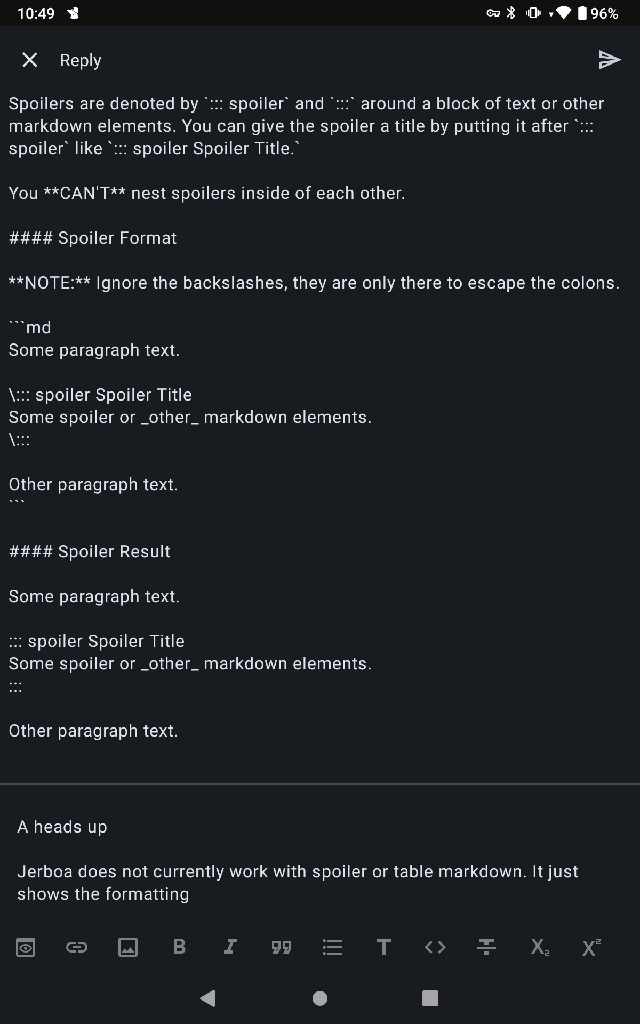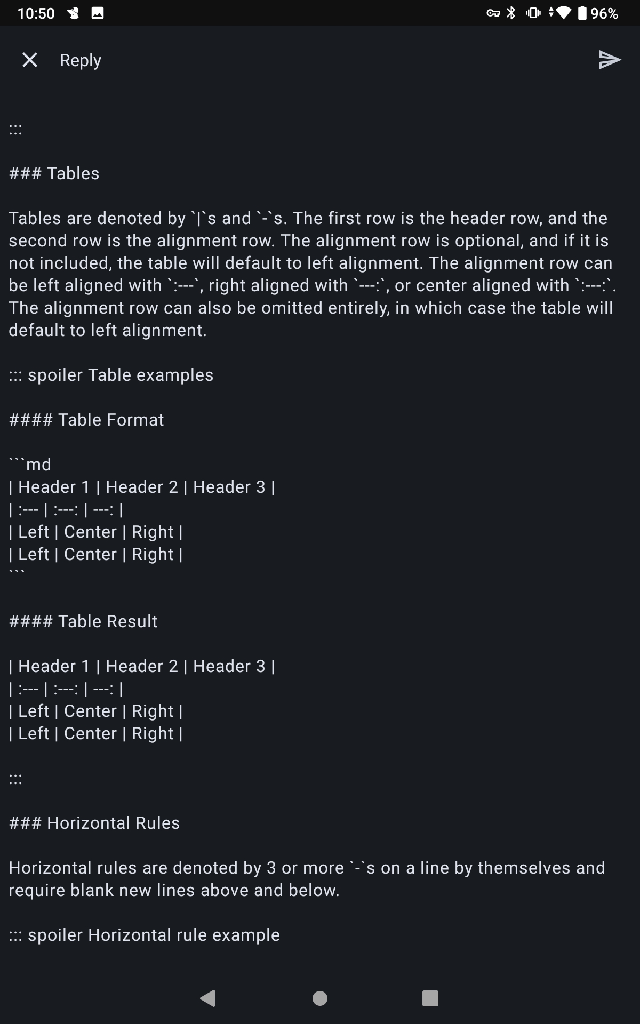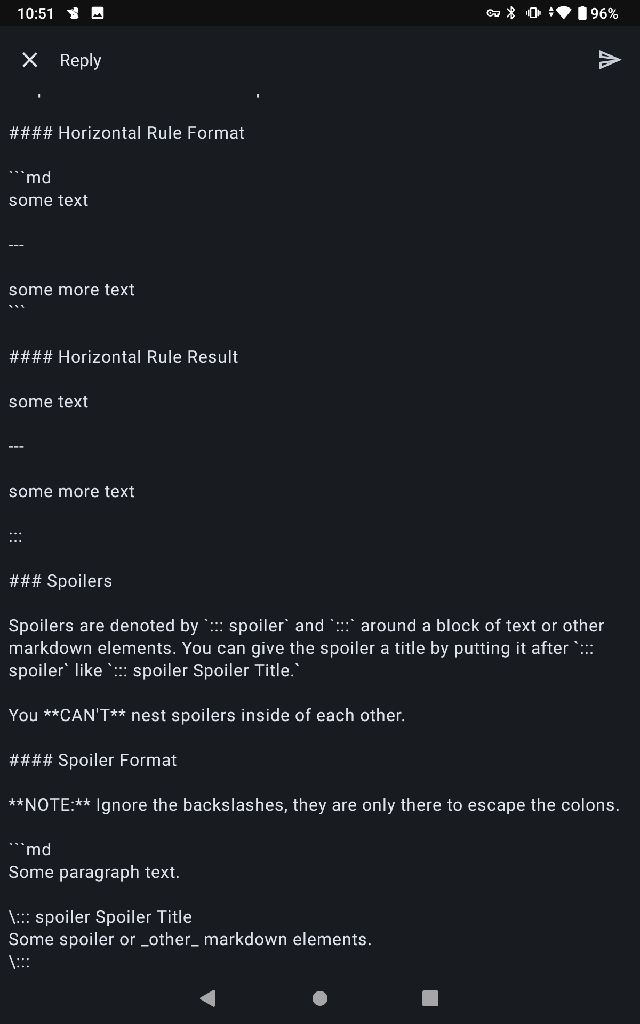Lemmy Markdown Text Formatting Guide
Lemmy Markdown Text Formatting Guide
Lemmy Markdown Formatting Guide
This post explains how to format Markdown with Lemmy and details it's nuances as best as possible.
Important Notes on Markdown with Lemmy
Lemmy parses Markdown using CommonMark, but with some additional features namely spoilers.
NOTE: Lemmy cares about the number of newlines between paragraphs. If you want to have a new paragraph, you need to have at least one newline between the two paragraphs. Or else, Lemmy will treat it as a single paragraph. You can see this in the example below.
Text Formatting
Paragraph Text
| Format | Alternate | Result |
|---|---|---|
_italic_ | *italic* | italic |
**bold** | __bold__ | bold |
**_bold italic_** | __*bold italic*__ | bold italic |
~~strikethrough~~ | ||
^superscript^ | superscript | |
~subscript~ | subscript |
Headings
Headings are denoted by a # at the beginning of a line. The number of #s determines the heading level up to 6. The alternate format is to have the heading text on the line below and underline it with = for heading 1 and - for heading 2.
Blockquotes
Blockquotes are simply a > at the beginning of a line.
Blockquote Format
md
> This is a blockquote. > This is > > a multiline > > blockquote. > This is > not a multiline > blockquote.
Blockquote Result
This is a blockquote.
This is
a multiline
blockquote.
This is not a multiline blockquote.
Lists
Lists can be ordered or unordered. Ordered lists are numbered, unordered lists are bulleted. You can nest lists by indenting them with 4 spaces or a tab, and you can mix ordered and unordered lists by indenting them differently.
Code Blocks
Code blocks are denoted by 3 backticks () on the line before and after the code block. Currently no syntax highlighting is supported. You can also do inline code blocks by using a single backtick () on either side of the code.
Links
Links are denoted by [link text](link url). You can also do reference links by doing [link text][link id] and then [link id]: link url somewhere else in the post, preferably at the bottom.
Images
Images are denoted by . You can also do reference images by doing ![alt text][image id] and then [image id]: image url somewhere else in the post, preferably at the bottom of the post like with reference links.
Tables
Tables are denoted by |s and -s. The first row is the header row, and the second row is the alignment row. The alignment row is optional, and if it is not included, the table will default to left alignment. The alignment row can be left aligned with :---, right aligned with ---:, or center aligned with :---:. The alignment row can also be omitted entirely, in which case the table will default to left alignment.
Horizontal Rules
Horizontal rules are denoted by 3 or more -s on a line by themselves and require blank new lines above and below.
Spoilers
Spoilers are denoted by ::: spoiler and ::: around a block of text or other markdown elements. You can give the spoiler a title by putting it after ::: spoiler like ::: spoiler Spoiler Title.
You CAN'T nest spoilers inside of each other.
Spoiler Format
NOTE: Ignore the backslashes, they are only there to escape the colons.
md
Some paragraph text. \::: spoiler Spoiler Title Some spoiler or _other_ markdown elements. \::: Other paragraph text.
Spoiler Result
Some paragraph text.
Other paragraph text.


